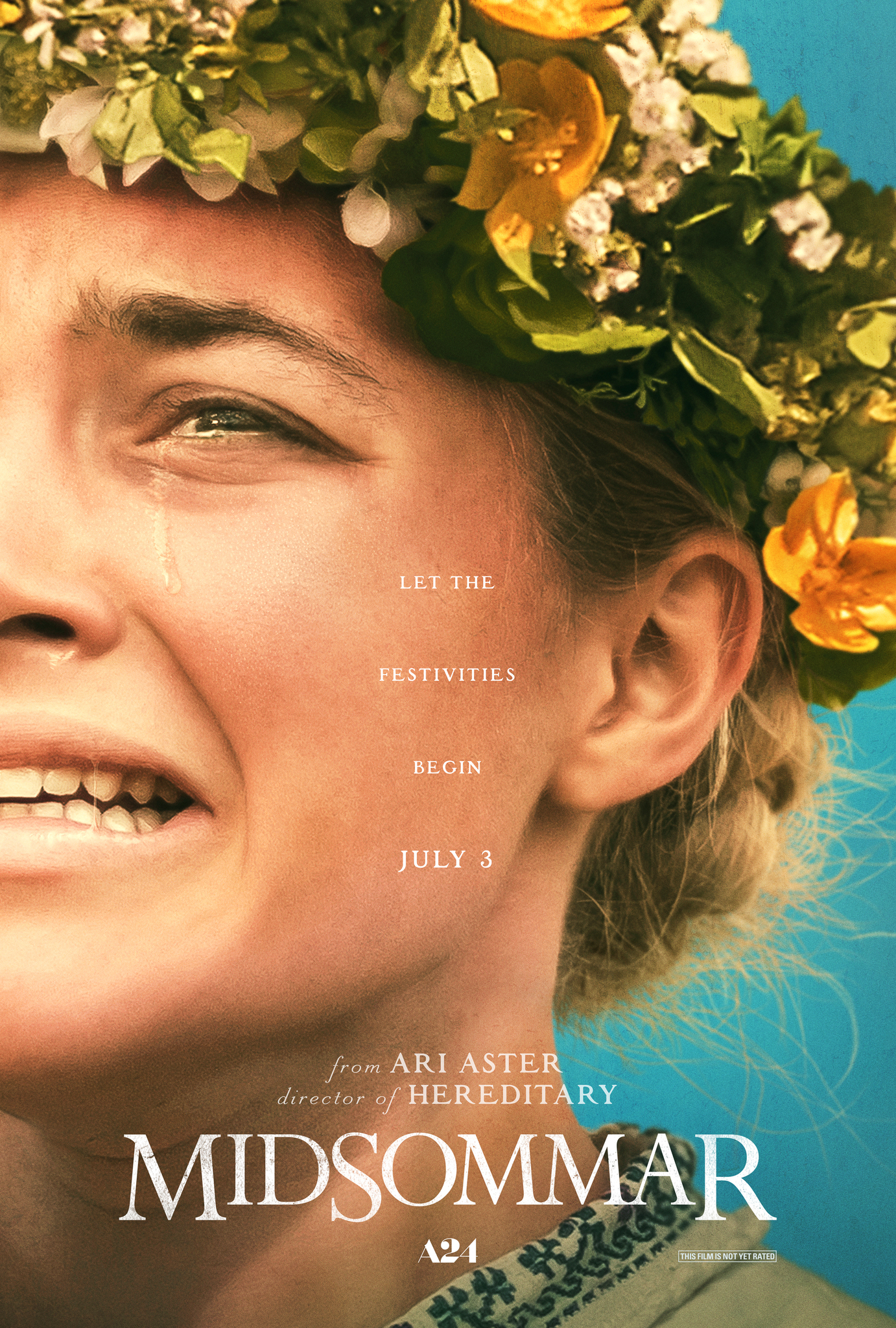Film Review: Midsommar (2019)



Where Ari Aster’s first feature (last year’s Hereditary) was a near-perfect exercise in psychological horror and slow-burning tension about the trauma of familial mental illness, Midsommar explores only slightly lighter avenues of the human experience. It’s been called a break-up movie (which it is), but there are also allusions to wide-ranging subjects such as American cultural insensitivity, colonialism, Nazi eugenics, and toxic masculinity. The pure, unadulterated dread of Hereditary is missing, but Midsommar – with its brightly lit pastoral setting and mysterious rituals – will still turn plenty of stomachs and unsettle many a viewer with its tripped-out hysteria led by a brilliant performance from Florence Pugh.

I can’t be certain what the driving force behind my interest in weird movies about occult rituals and pagan philosophies is, or how it came to be. It may have been my upbringing during the “Satanic Panic” of the 1980s, or maybe it’s just a rebellion against the Germanic/Scandinavian Lutheranism and Law of Jante I was raised in. It’s probably a bit of both (and that damned heavy metal, of course), but either way, on a surface level alone, Midsommar is the kind of movie I’ve been waiting for a long time without even realizing it.

Set in northern Sweden, Midsommar has us follow four Americans as they are welcomed into a secretive commune on the eve of an ancient festival. Dani (Pugh), after a grisly family tragedy, has tagged along with her clueless boyfriend Christian (Jack Reynor) and his two best friends, Josh and Mark (William Jackson Harper and Will Poulter) at the invite of village native Pelle (Vilhelm Blomgren). The commune, Hårga, lies in a beautiful valley that’s bathed in near 24-hour sunlight this time of year and the villagers dress in traditional Swedish garments emblazoned with decorative symbols and runes. They are open, polite, and hospitable.

As the nine-day festival gets underway, Dani, still suffering the aftershocks of her personal trauma, begins to feel uneasy about the location, the ceremonies, and her relationship with Christian. As the increasingly bizarre and shocking festivities continue, Dani and the others realize only too late that they are much more involved than they’d like to be. Fueled by hallucinogenic drugs and bewitching traditions, Hårga is a paradise for some and a surreal nightmare for others.

Midsommar spirals into unexpected soil as Dani begins to come to terms with her uncaring, selfish boyfriend and her desire to find a family to replace the one she’s lost. Self-absorption is common among the American visitors and stands out like a sore thumb in the face of the communal lifestyle and of the Hårganites. Advantages are taken (or attempted at, anyway) and an air of superiority over these backwoods Scandinavian hicks is evident in word and deed. Exploitation seems to be the endgame for the Americans, but the villagers have other ideas.

What’s interesting about this attempted exploitation at the hands of the overly-educated and arrogant Americans is that because of it, it is them, not the pagan ritualists, who come off as the bad guys. There’s a sense of justice to their fates. After all, the rites practiced at Hårga have been around centuries longer than most existing civilizations (with many of them having a basis in real-life folklore and legend), and the enclave is prospering despite the modernization taking place in the world around them. In one scene -after witnessing a display that defies western or “modern” sensibilities – Pelle tells his friends that this practice is part of their heritage and that he’s proud of it, regardless of their objections. He asks them to understand – to see that it’s not barbaric but liberating. He makes a decent point of it too – in a Janteloven kind of way.

At the center of this exploration is Florence Pugh’s performance. As Dani, she is continually distraught – and for good reason. Aster, who also wrote the film, has her run the gamut of recognizable emotions, but holds one very important one back until the final shot of the film. Up till then, Midsommar serves as an unnerving, yet fun (even funny), romp through some familiar territory (The Wicker Man and other The Devil Rides Out come to mind), albeit with more subtext and a hell of a lot of directorial panache. Just before the credits roll, however – when you realize what Dani hasn’t been allowed to feel until just then – we’re given something we’ve been craving as well: emotional catharsis. Suddenly, Midsommar transforms from simply a very well made and symbolic film to one of rich rewards and lasting impact.
